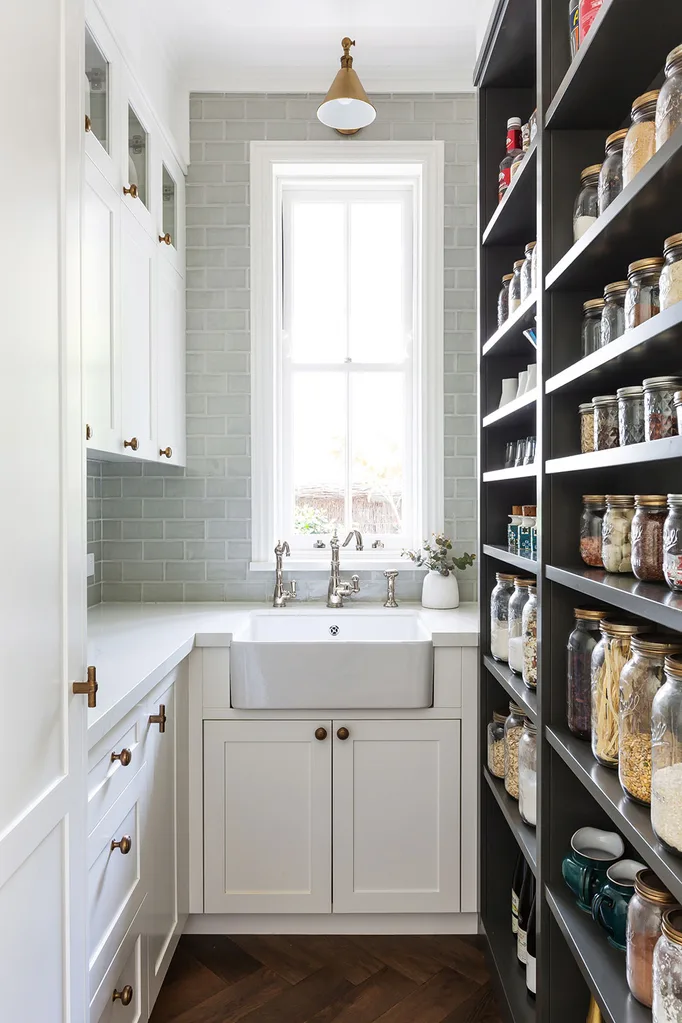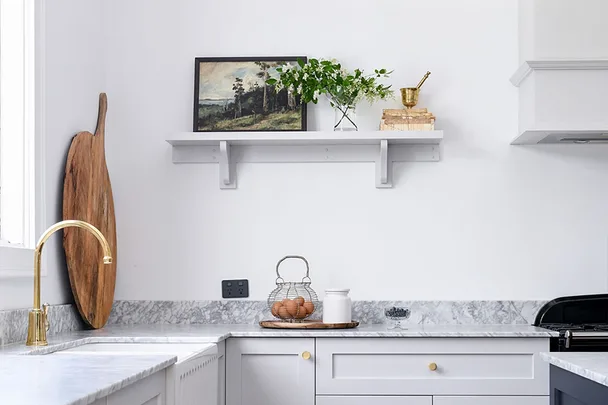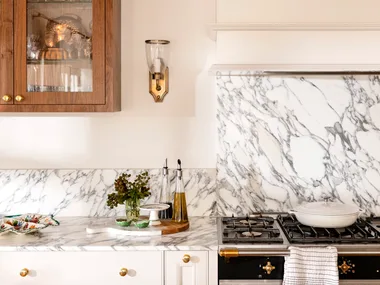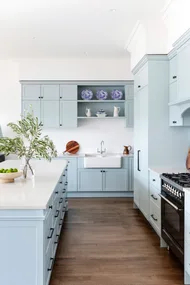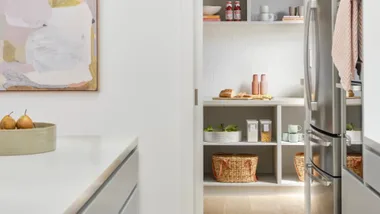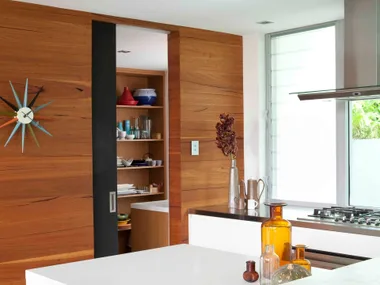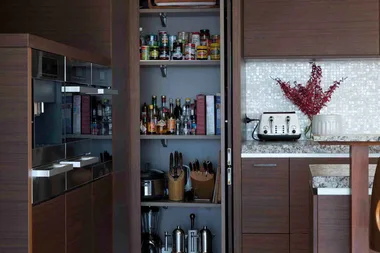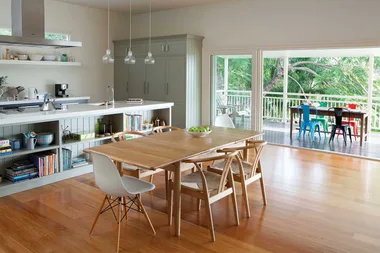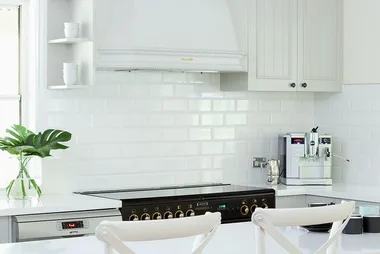It’s a well-known fact: a kitchen can never have too much storage. While closed cabinetry and deep drawers are excellent at keeping the most unsightly elements of a kitchen well hidden, open shelving is an opportunity to add both personality and style.
Kitchen shelves, whether in the form of floating shelves, shelving units, custom joinery or even a classic freestanding hutch, create potential to store and display your best crockery, cookbooks, indoor plants, art, and family photographs. In the pantry, shelves are the most practical option for storing ingredients. Shallow open shelves keep frequently-used ingredients in sight and within arm’s reach.
Here are 10 kitchen shelving ideas that make a strong case for doing away with cabinet doors (at least some of the time).
1. Almost invisible floating shelves
The hero of this warm and cosy kitchen is the messmate cabinetry. Black walls and a matching black floating shelf allow the cabinetry to shine and give the eye somewhere to rest.
The kitchen island also has a shelving nook, perfect for storing everything from cookbooks to pottery.
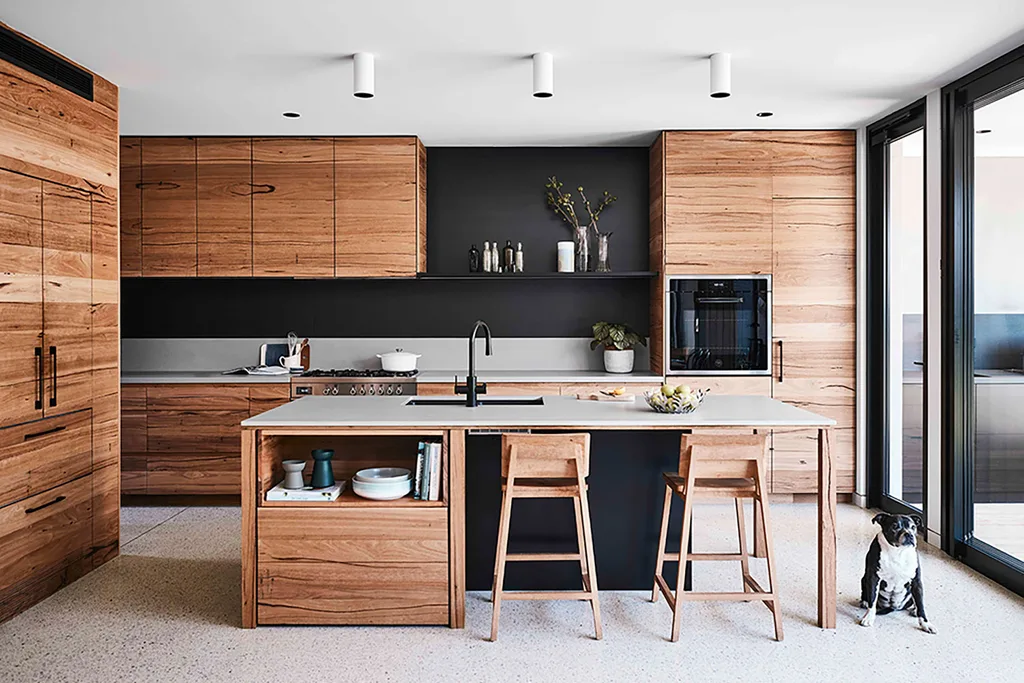
2. Open timber kitchen shelving
Homeowner Annelise worked with architectural designer Sally Wilkins to create a meticulously designed kitchen with a spot for absolutely everything.
“Open shelving either side of the rangehood shows off my beautiful ceramic pieces in colours that complement the marble and paintwork,” says Annelise.
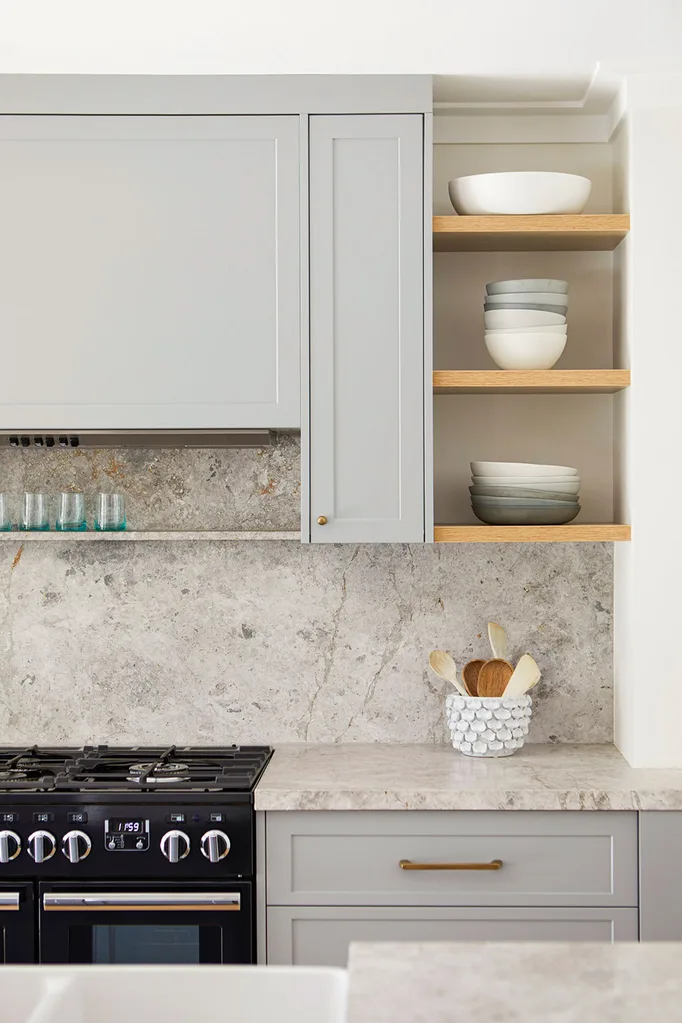
3. Feature wall shelving
Open shelving is the perfect choice for this breezy, coastal kitchen.
A display of locally made ceramics have transform the simple shelving unit into a stunning wall feature. Walls and cabinetry painted in Resene Half Black White.
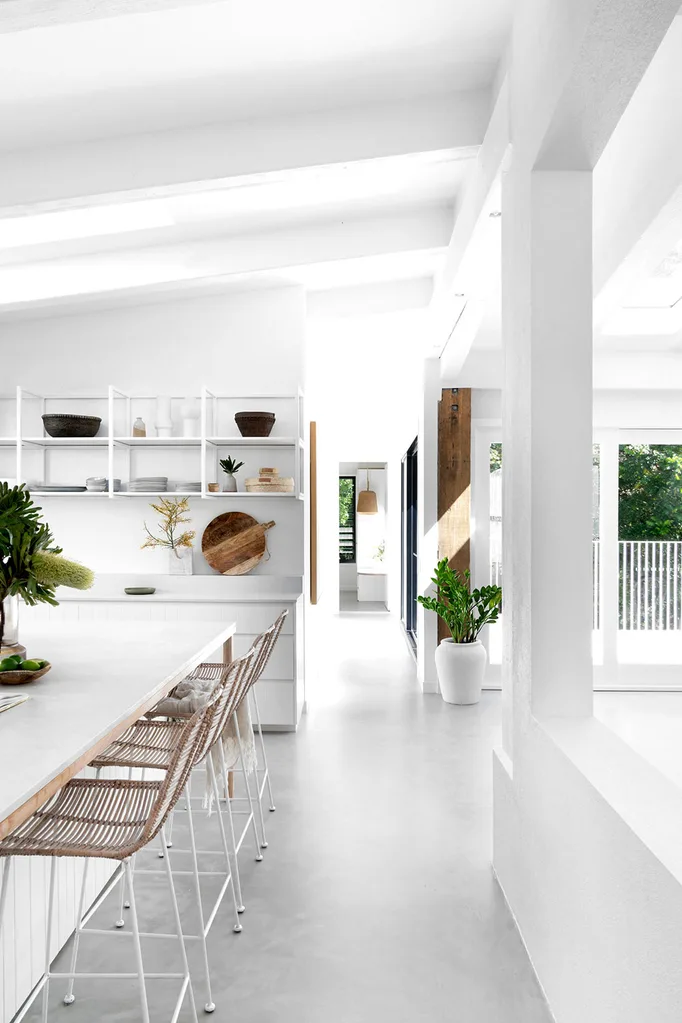
4. Small shelf, big impact
In this kitchen, the choice of a short splashback creates an opportunity for a pretty little shelf to hold artwork and other kitchen treasures.
Homeowner Carol designed the kitchen to blend into the open-plan living area, keeping the splashback and overhead cabinetry to a minimum.
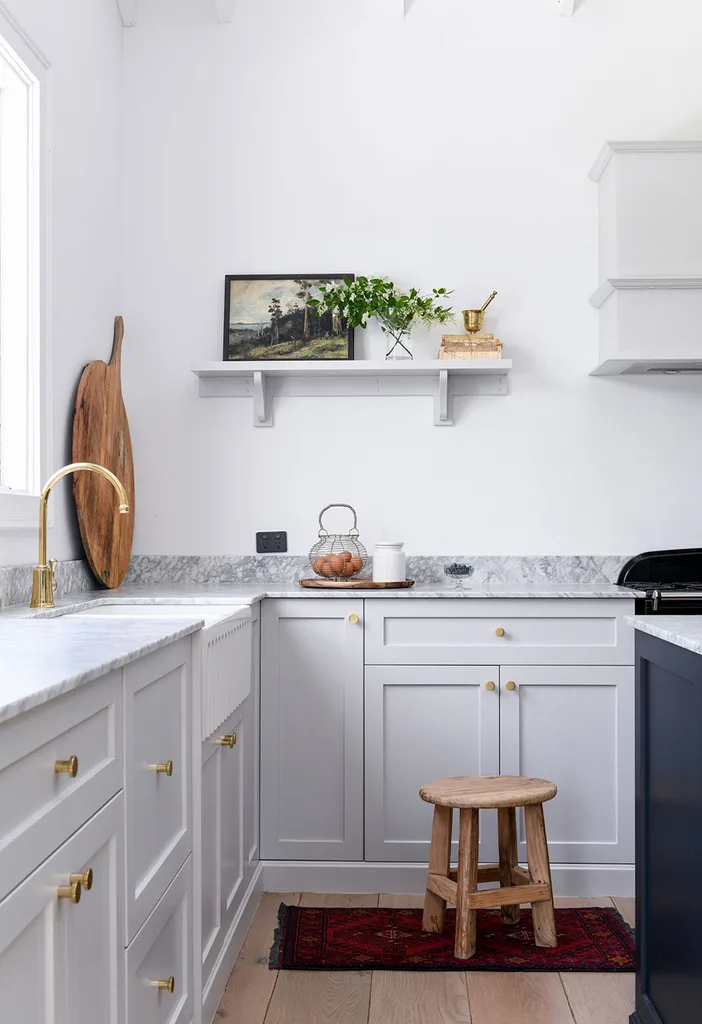
5. Modern-day hutch
If you’re renting, one way to add shelving to a storage-starved space is with a freestanding hutch.
In this newly-built Hamptons style home, a modern-day take on a classic hutch keeps plates and bowls on display, while glass doors prevent them from collecting dust.
For a similar style, try the LIATORP bookcase with glass doors from IKEA or the White Hamptons 2-door display cabinet from Temple & Webster.
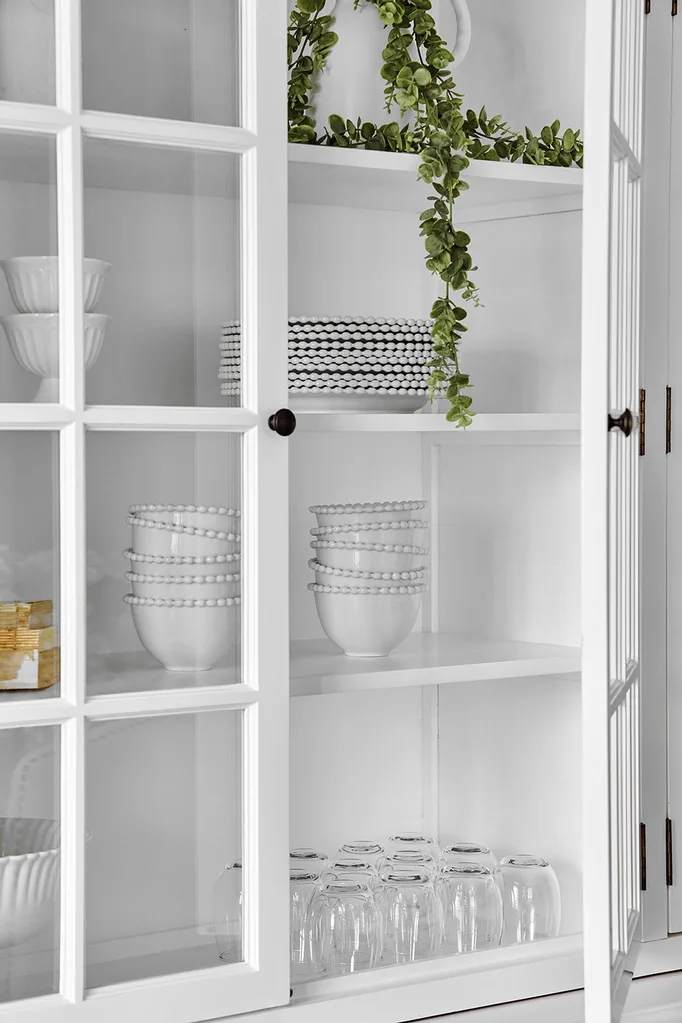
6. American oak veneer kitchen shelving
In this coastal style kitchen, open shelving in an oak timber veneer creates an opportunity to style pottery and trailing indoor plants.
When paired with the window splashback, the effect is a space that blurs the line between indoors and out.
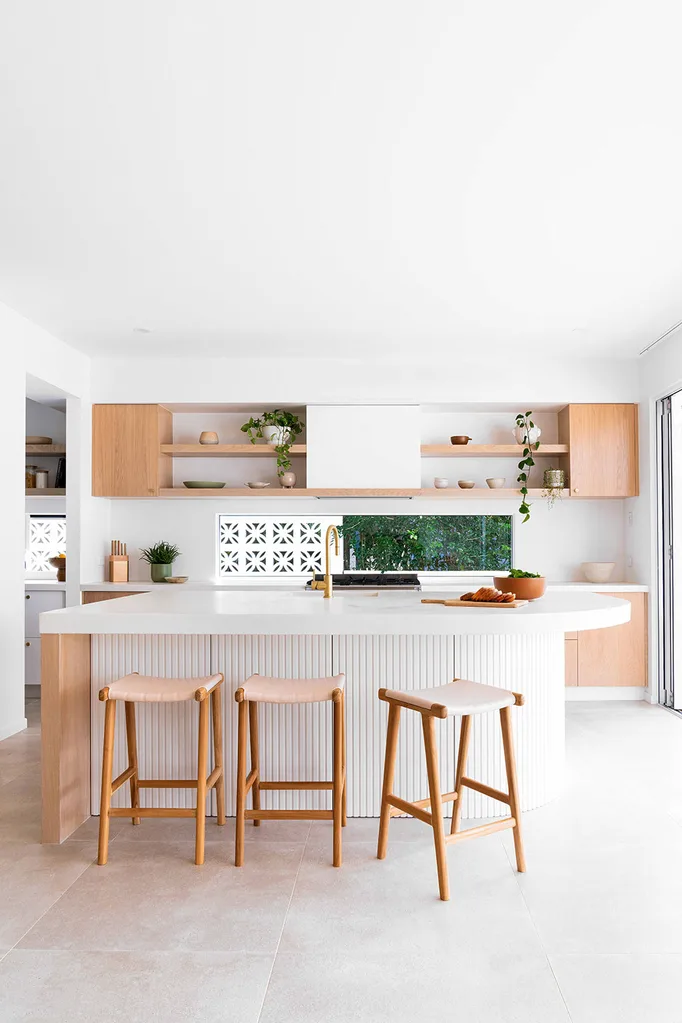
7. Butlers pantry shelving
The kitchen of this colourful Hamptons home designed by Anna Spiro has two distinct personalities. The main kitchen is sleek and streamlined, but step into the light-filled butlers pantry and you’ll see where the action really happens.
Glass jars filled with essential baking ingredients line rows of open shelving while stainless steel benches are a practical and durable surface to whip up a storm.
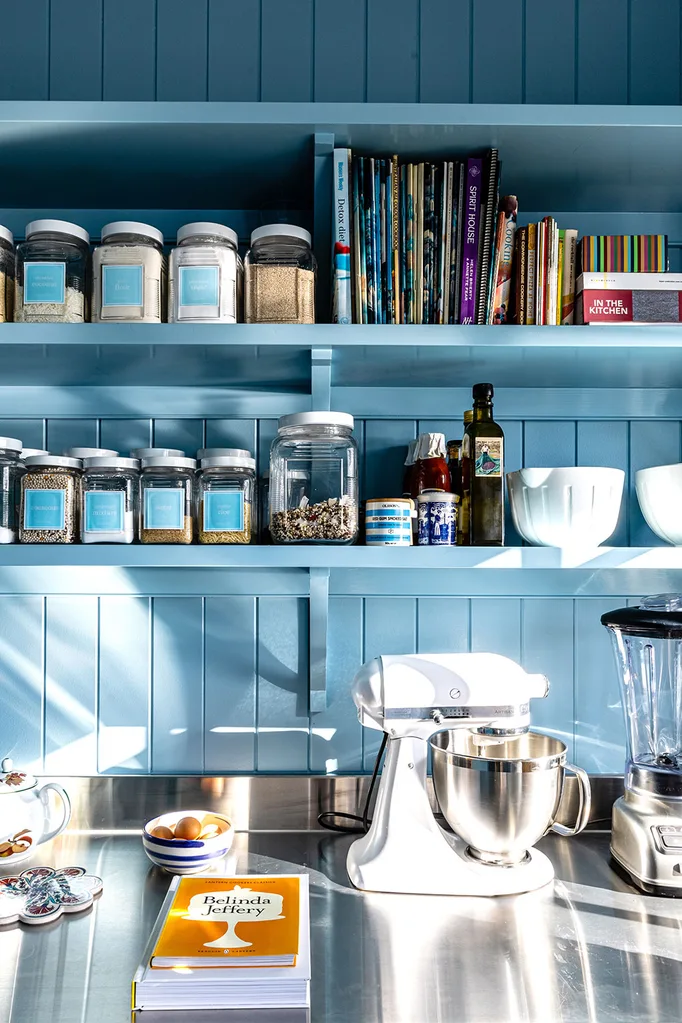
8. Galley kitchen shelving
Not only is this relaxed kitchen the heart of the home, it’s also its main thoroughfare, connecting the living room to the back bedrooms and bathrooms.
Open shelving prevents cabinetry from overwhelming the space and also creates the perfect opportunity to display art, textural objects and treasured trinkets.
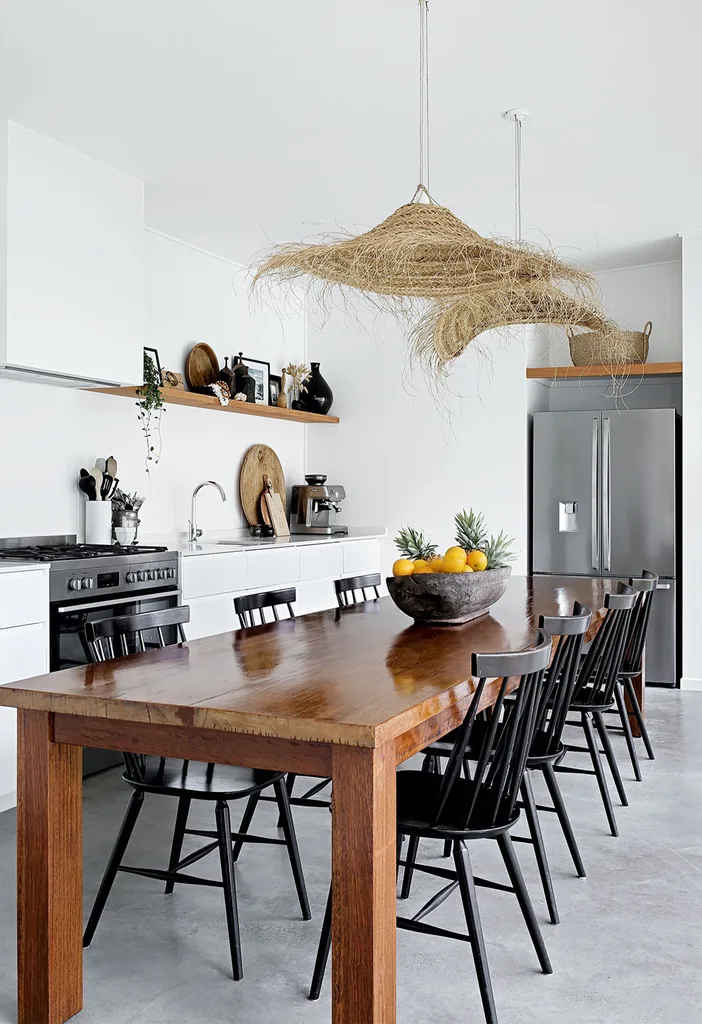
9. Floating shelving on nib wall
Floating shelves allow a nib wall separating the main kitchen from the butler’s pantry to serve more than one function.
It keeps all of the “ugly stuff” concealed in the butler’s pantry, holds art, cookbooks and indoor plants, and allows an otherwise blank wall to become a real style statement.
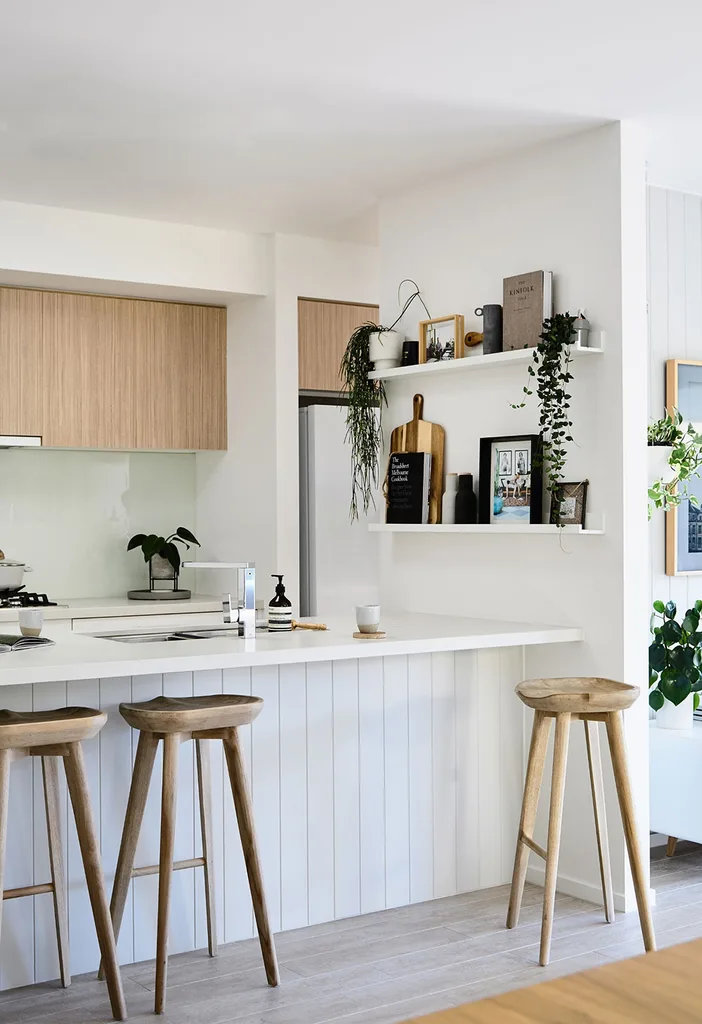
10. Shallow pantry shelving
Interior designer and homeowner Laura Hollingsworth made a point of installing custom shallow open shelving in her kitchen’s butlers pantry.
“So many pantry shelves are too deep, and you can’t see or reach things easily,” she says. “I wanted to find everything immediately, which is also why I used glass jars.”
